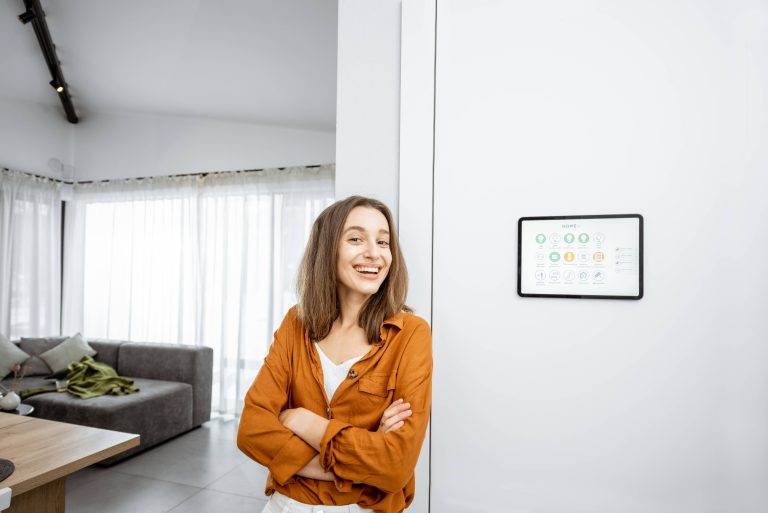
In recent years, the concept of a “smart home” has evolved from a futuristic dream into a tangible reality, thanks in large part to the rapid advancements in artificial intelligence (AI). AI’s influence on home automation design is profound, reshaping how we interact with our living spaces and enhancing our daily lives in ways we could only imagine a decade ago. This blog post delves into the transformative role AI plays in home automation, exploring its impact on design, functionality, and the overall user experience.
The Rise of AI in Home Automation
The integration of AI into home automation systems has been a game-changer. At its core, AI enables devices to learn from user behaviors, adapt to preferences, and make intelligent decisions. This capability is what sets smart homes apart from traditional automated systems. While early home automation relied on pre-set rules and manual programming, AI-driven systems offer a level of personalization and adaptability that was previously unattainable.
Personalized User Experience
One of the most significant impacts of AI on home automation design is the ability to create a highly personalized user experience. AI algorithms analyze data from various sensors and devices within the home to understand the habits and preferences of its occupants. For instance, a smart thermostat can learn your preferred temperature settings throughout the day and adjust accordingly without any manual input. Similarly, AI-powered lighting systems can adapt to your daily routine, ensuring that lights are turned on or off based on your presence and preferences.
This level of personalization extends beyond mere convenience. It enhances the overall quality of life by creating an environment that is tailored to individual needs. Imagine coming home after a long day to find your favorite music playing, the lights dimmed to your preferred setting, and the temperature just right—all without lifting a finger. This seamless integration of technology into daily life is made possible by AI’s ability to learn and adapt.
Enhanced Security and Safety
AI’s influence on home automation design is not limited to comfort and convenience; it also plays a crucial role in enhancing security and safety. AI-powered security systems can analyze video feeds in real-time, distinguishing between normal activity and potential threats. This capability allows for more accurate and timely alerts, reducing the likelihood of false alarms.
Moreover, AI can integrate with other smart devices to create a comprehensive security ecosystem. For example, if a security camera detects unusual activity, it can trigger smart locks to secure doors and windows, or alert the homeowner via a smartphone notification. This interconnected approach to security ensures that homes are not only smart but also safe.
Energy Efficiency and Sustainability
Another area where AI is making a significant impact is in energy efficiency and sustainability. AI-driven home automation systems can optimize energy usage by learning patterns and making adjustments in real-time. Smart thermostats, for example, can reduce energy consumption by adjusting heating and cooling based on occupancy and weather conditions. Similarly, AI can manage lighting systems to minimize energy waste, turning off lights in unoccupied rooms or adjusting brightness based on natural light availability.
By optimizing energy usage, AI not only helps homeowners save on utility bills but also contributes to a more sustainable future. As concerns about climate change and resource conservation grow, the role of AI in promoting energy efficiency becomes increasingly important.
Challenges and Considerations
While the benefits of AI in home automation are undeniable, there are also challenges and considerations to keep in mind. Privacy and data security are major concerns, as AI systems rely on collecting and analyzing vast amounts of personal data. Ensuring that this data is protected and used responsibly is crucial to maintaining user trust.
Additionally, the complexity of AI-driven systems can pose challenges for users who are not tech-savvy. Designing intuitive interfaces and providing adequate support and education are essential to ensuring that all users can fully benefit from smart home technology.
The Future of AI in Home Automation
As AI technology continues to advance, its influence on home automation design will only grow. We can expect even more sophisticated systems that offer greater levels of personalization, security, and energy efficiency. The integration of AI with emerging technologies such as the Internet of Things (IoT) and 5G will further enhance the capabilities of smart homes, making them more interconnected and responsive than ever before.
In conclusion, AI’s influence on home automation design is transforming the way we live, offering unprecedented levels of convenience, security, and efficiency. As we continue to embrace this technology, the possibilities for creating smarter, more responsive homes are virtually limitless. The future of home automation is bright, and AI is at the forefront of this exciting evolution.













